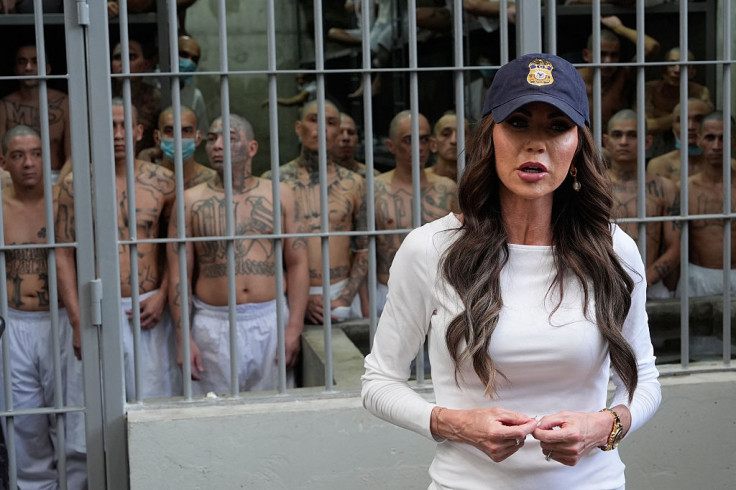
Venezuelans deported under the Trump administration's use of the Alien Enemies Act and detained in El Salvador's high-security Terrorism Confinement Center (CECOT) no longer appear in U.S. Immigration and Customs Enforcement's online detainee locator and the U.S. has not provided evidence of their alleged gang affiliations according to a new report from The Associated Press.
The detainees, alleged by the U.S. government to be members of the "Tren de Aragua" gang, have also not appeared before a judge in El Salvador and are not serving sentences, raising questions about when and how they could ever be freed.
Families and legal representatives argue that the detainees have no criminal records and were denied due process before deportation. Attorney Jaime Ortega, representing 30 of the detainees, has filed a habeas corpus petition with El Salvador's Supreme Court, requesting their release. "By extension, we ask that this apply to all Venezuelans detained in El Salvador," Ortega told AP.
U.S. Homeland Security Secretary Kristi Noem visited CECOT on Wednesday, touring the facility and meeting with Salvadoran officials. When asked whether the detainees could be indefinitely held or returned to the U.S. if a court orders it, Noem declined to clarify.
"We're going to let the courts play out," she told reporters. She later recorded a video message stating that individuals who enter the U.S. illegally and commit crimes will face consequences, citing the prison as a deterrent.
The controversial deportations were carried out under the Alien Enemies Act, a wartime law allowing the president to remove noncitizens without judicial review. The Trump administration invoked this authority, arguing that the U.S. was under threat from "Tren de Aragua."
El Salvador's President Nayib Bukele, who has implemented a strict anti-gang crackdown, immediately placed the deportees in CECOT. His government claims the U.S. is paying an annual fee for their incarceration though human rights organizations argue that their detention lacks legal justification.
El Salvador has not had diplomatic relations with Venezuela since 2019, leaving the detainees without consular support. The Venezuelan government and the Families of Immigrants Committee in Venezuela hired legal counsel to challenge their imprisonment on Wednesday, with lawyer Salvador Rios claiming that "they are not members of Tren de Aragua and have no criminal records."
A U.S. judge issued an order temporarily blocking the deportations on the same day they were made, but the administration argued that flights already in transit were exempt. A U.S. appeals upheld the temporary block on further deportations under the Alien Enemies Act on Thursday, while a federal judge is evaluating whether the administration defied judicial orders. As legal proceedings continue, the future of the Venezuelan detainees remains uncertain.
© 2025 Latin Times. All rights reserved. Do not reproduce without permission.






